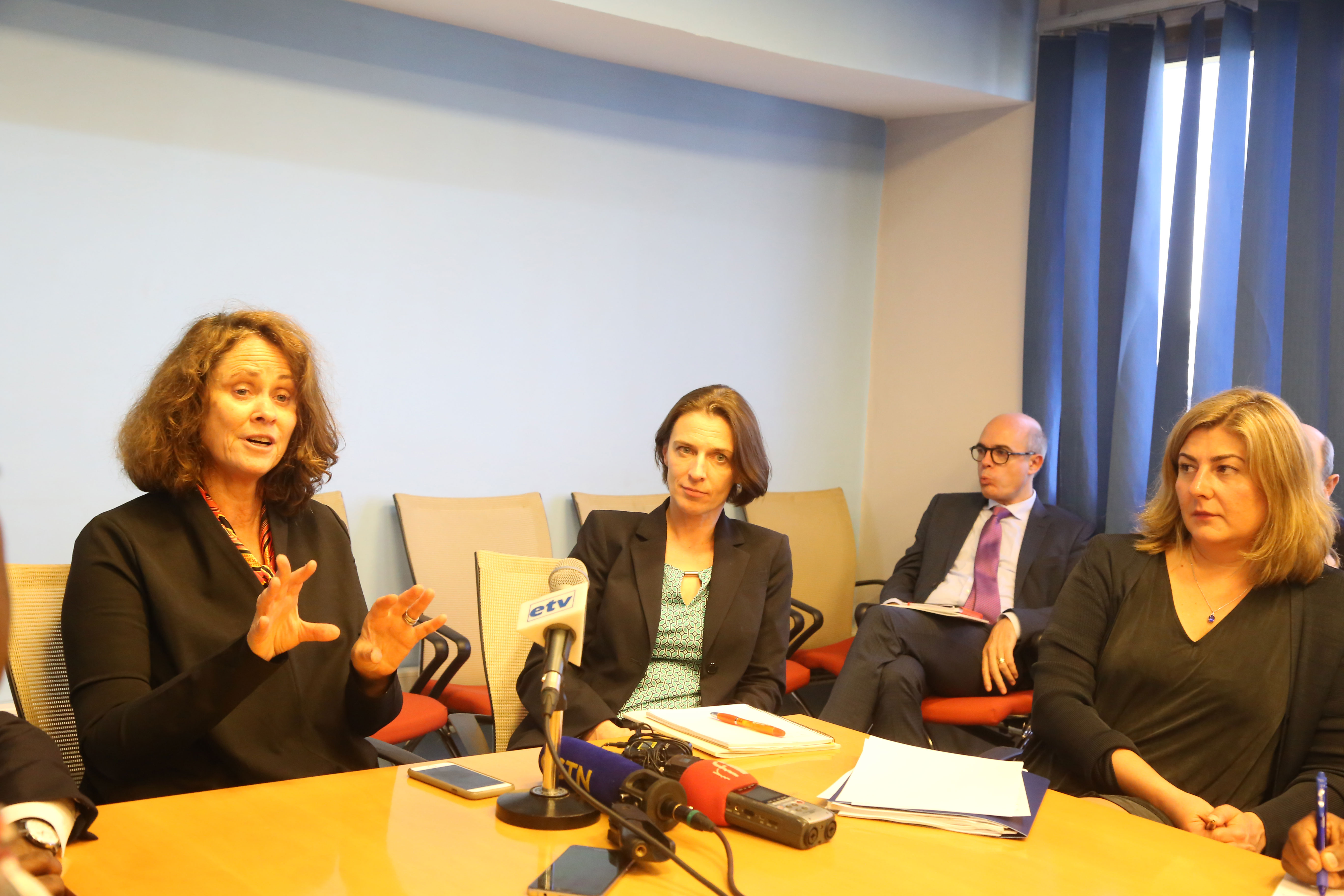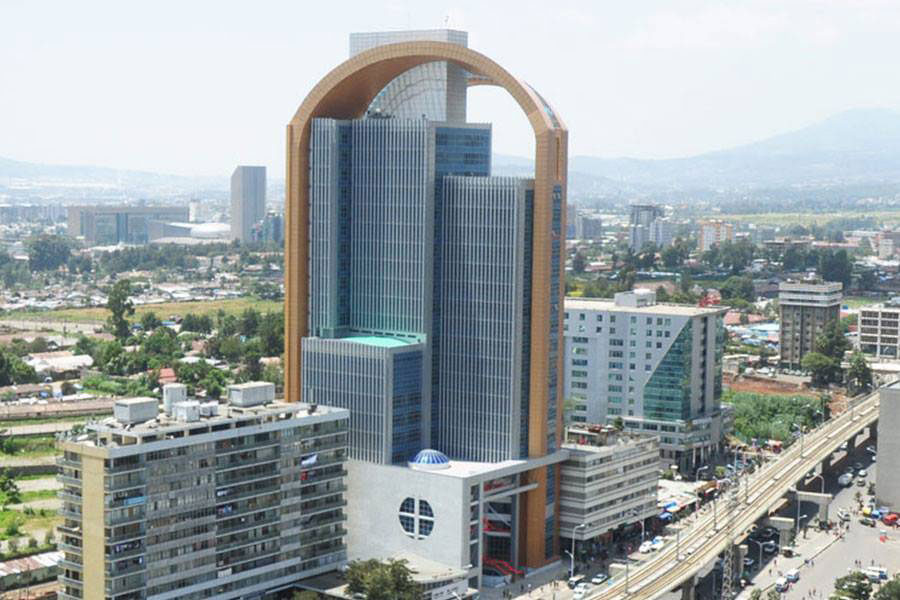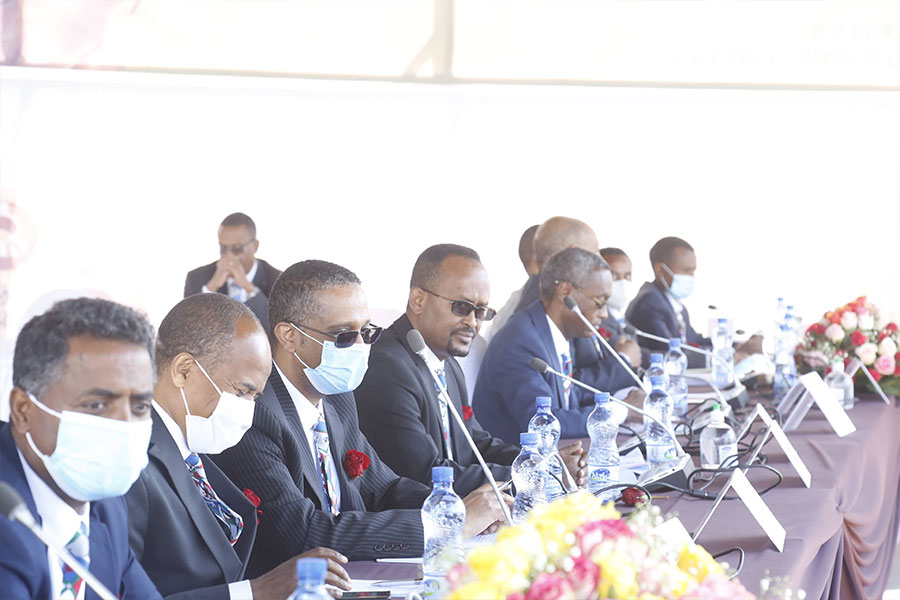
Fortune News | Nov 21,2018
The Bank of Abyssinia has donated 7.7 million Br worth of personal protective gear and sanitary materials to 37,000 private and public pensioners that receive payments through the Bank.
The Bank donated face masks, sanitiser and soap as a means of helping its pension customers protect themselves from the Novel Coronavirus (COVID-19). The Bank, which has 480 branches in the country, started distributing the materials along with the pension payments in May 2020. The pensioners are each receiving two face masks, soap and half a litre of sanitiser.
The materials were procured following the onset of the virus in the country, with an additional 1.2 million Br allocated for its 9,826 employees across the country.
Their age and low incomes are the reasons the Bank chose to focus on the pensioners, according to Elsabeth Gebru, the Bank's corporate communications manager.
"Their age puts them at high risk for the virus, so they need protective equipment," she said. "Additionally, buying the materials was our way of easing this process and going forward by one more step."
The Private Organisation Employees Social Security Agency, which has taken on 27,000 pensioners since its establishment eight years ago, services its 5,292 pensioners through the Bank. The Agency also uses the Amhara Credit & Saving Institution, Commercial Bank of Ethiopia and Wegagen and Oromia banks.
The Bank of Abyssinia has been the first to reach out and offer support to its pensioners, according to Kidus Hagos, the Agency's operations director.
"We have a collective responsibility toward retired people. They have served their country at all levels from every field, and we need to ensure that they're being protected," Kidus said.
The Agency itself is undergoing a financial assessment as it is one of the institutions impacted by the economic aftereffects of COVID-19. With the job losses that have happened and are imminent shortly, it may even need to be subsidised by the government.
"If there are more job losses and the amount the Agency pays out monthly is greater than what it receives, eventually it'll need support," he added.
Employees of the Bank across the country have also contributed close to 1.7 million Br that has gone to purchasing different materials, from personal protective equipment to basic food items. These were given out as support for a select vulnerable population.
The Public Servant's Social Security Agency has over 160,000 pensioners just in Addis Abeba alone. The Agency's 31,978 pensioners are being paid through Abyssinia Bank. The Ethiopian Postal Service, among other private banks, provides a monthly payment to pensioners for the Agency.
The Agency made a call to all its institutions, including United Bank, the first private bank to be enlisted as a provider, to assist pensioners and the request was confirmed by Abyssinia Bank, according to Tamirat Gashaw, the public Agency's Addis Abeba region head.
Representatives from the Agency will be present at the Bank's branches on Monday to witness and assess the distribution of materials among the pensioners, according to Tamirat.
"It's a great initiative on the part of the Bank," he said.
The Agency is also set to start providing all its services to pensioners as of next week.
The impact of COVID-19 will not be similar on all groups, according to Yeraswork Admassie (PhD), executive director at the Forum For Social Studies.
"Pensioners, however, fall under one of the most vulnerable populations," said Yeraswork. "Studies have shown that almost all of them are financially troubled, as most are getting 40pc of an already miserable income."
Coupled with existing health problems that they already have and their age, attention to assisting pensioners at this time is critical, according to Yeraswork.
Abera Beyene, a former military captain who later worked as a security guard, is one of the retired pensioners. At the age of 64, he takes his monthly pensions but has continued to work as a security guard.
"With a family of five, my pension isn't enough to take care of my whole family," he said. "But the Bank has been the first to offer their support, and I'm grateful for that."
Abera hopes that other institutions will also step up to the plate.
"Beyond the support, awareness must be created on why it is of utmost importance that they use the materials provided," said Yeraswork.
In addition to this, banks that are working with pensioners should create a consortium and work on providing similar assistance, so their impact is broader and more robust, Yeraswork advised.
PUBLISHED ON
Jun 07,2020 [ VOL
21 , NO
1050]

Fortune News | Nov 21,2018

Agenda | Oct 30,2021

Radar | Jul 28,2024

Fortune News | Jul 06,2025

Fortune News | Jan 19,2024

Fortune News | Mar 26,2022

Fortune News | Jul 11,2021

Fortune News | Dec 25,2021

Fortune News | Apr 24,2021

Fortune News | Sep 10,2021

Dec 22 , 2024 . By TIZITA SHEWAFERAW
Charged with transforming colossal state-owned enterprises into modern and competitiv...

Aug 18 , 2024 . By AKSAH ITALO
Although predictable Yonas Zerihun's job in the ride-hailing service is not immune to...

Jul 28 , 2024 . By TIZITA SHEWAFERAW
Unhabitual, perhaps too many, Samuel Gebreyohannes, 38, used to occasionally enjoy a couple of beers at breakfast. However, he recently swit...

Jul 13 , 2024 . By AKSAH ITALO
Investors who rely on tractors, trucks, and field vehicles for commuting, transporting commodities, and f...

Jul 12 , 2025
Political leaders and their policy advisors often promise great leaps forward, yet th...

Jul 5 , 2025
Six years ago, Ethiopia was the darling of international liberal commentators. A year...

Jun 28 , 2025
Meseret Damtie, the assertive auditor general, has never been shy about naming names...

Jun 21 , 2025
A well-worn adage says, “Budget is not destiny, but it is direction.” Examining t...